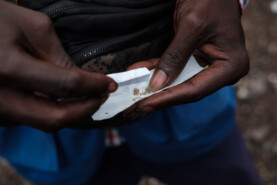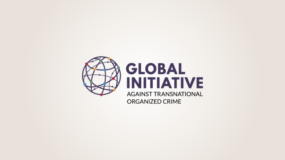The Global Initiative Against Transnational Organized Crime notes with satisfaction the decision by the Nigerien anti-Narcotics agency, OCRTIS, to withdraw the complaint against investigative journalists Samira Sabou and Moussa Aksar and the GI-TOC in respect to its research on drug trafficking.
In light of this, the Global Initiative wishes to state:
The Global Initiative against Transnational Organized Crime (GI-TOC), a non-governmental organization whose work focuses on raising awareness of the threat posed by organized crime posted a blog post on May 11, 2021 titled “Strange days for hashish trafficking in Niger” dealing with the evolution of drug trafficking routes in the region and the seizure of 17 tonnes of cannabis on March 2, 2021 in Niamey.
Following this publication, the Central Office for the Repression of Illicit Trafficking in Narcotic Drugs (OCRTIS), whose function is to combat drug trafficking in Niger, made public a right of reply that GI-TOC published on May 29, 2021.
GI-TOC takes note of the presence of the constituted authorities intervening in the sector during the incineration operation which took place on April 24, 2021.
GI-TOC wishes to recognize that certain passages of the article are likely to damage the reputation of OCRTIS, an essential service in the fight against drug trafficking in Niger and, beyond, internationally.
GI-TOC recognizes the significant contribution made by OCRTIS in the fight against international drug trafficking in the face of the major and complex challenges facing the region.
GI-TOC also wishes to clarify that the objective of the article was not to tarnish the image of OCRTIS, or that of the government of Niger, but to advance the fight against drug trafficking. In the region.
In recent months, the GI-TOC has engaged in productive talks with OCRTIS, in which OCTRIS has reiterated the importance of independent research and reporting. Against this background, GI-TOC is committing itself to work closely with OCTRIS and the Nigerien authorities over the coming months to explore ways to broaden the dialogue and help build the capacity of the Nigerien authorities in the fight against drug trafficking.
La Global Initiative Against Transnational Organized Crime note avec satisfaction la décision de l’agence nigérienne de lutte contre les stupéfiants, l’OCRTIS, de retirer la plainte contre les journalistes d’investigation Samira Sabou et Moussa Aksar et le GI-TOC au titre de ses recherches sur le trafic de drogue.
À la lumière de cela, la Global Initiative souhaite déclarer:
L’Initiative mondiale contre la criminalité transnationale organisée (GI-TOC), une organisation non gouvernementale, dont le travail se concentre sur la sensibilisation à la menace posée par le crime organisé a publié un article sur un blog le 11 mai 2021 intitulé «Strange days for hashish trafficking in Niger» traitant de l’évolution des routes du trafic de drogue dans la région et la saisie de 17 tonnes de cannabis le 2 mars 2021 à Niamey.
Suite à cette publication, l’Office Central de Répression du Trafic Illicite des Stupéfiants (OCRTIS) dont la fonction est de lutter contre le trafic de drogue au Niger a rendu public un droit de réponse que la GI-TOC a publié le 29 mai 2021.
GI-TOC prend acte de la présence des autorités constituées intervenant dans le secteur lors de l’opération d’incinération qui a eu lieu le 24 avril 2021.
GI-TOC tient à reconnaître que certains passages de l’article sont de nature à porter atteinte à la réputation de l’OCRTIS, service essentiel dans la lutte contre le trafic des stupéfiants au NIGER et, au-delà, à l’international.
GI-TOC reconnaît la contribution significative apportée par l’OCRTIS dans la lutte contre le trafic international de drogue face aux défis majeurs et complexes auxquels la région est confrontée.
GI-TOC tient, en outre, à préciser que l’objectif de l’article n’était pas de ternir l’image de l’ OCRTIS, ou celle du gouvernement du Niger, mais de faire avancer la lutte contre le trafic de drogue dans la région.
Ces derniers mois, la GI-TOC a engagé des discussions productives avec l’OCRTIS, au cours desquelles l’OCRTIS a réitéré l’importance de la recherche et du reporting indépendants. Dans ce contexte, la GI-TOC s’engage à travailler en étroite collaboration avec l’OCTRIS et les autorités nigériennes au cours des prochains mois afin d’explorer les moyens d’élargir le dialogue et d’aider à renforcer les capacités des autorités nigériennes dans la lutte contre le trafic des stupéfiants.



